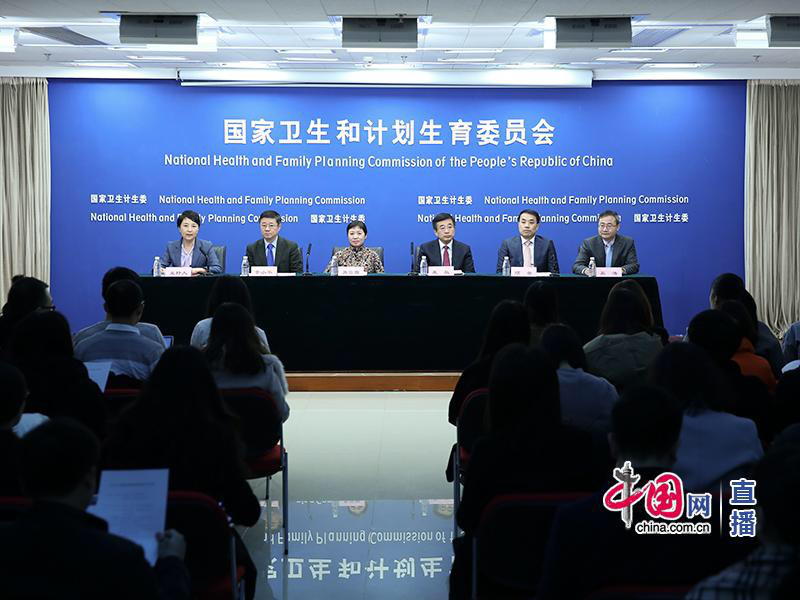Experts hail improved community health service

A press conference on the construction of Healthy China is held in Beijing on Feb 27. [Photo/ China.org.cn]
The necessity of shifting the focus of medical services to the grassroots level was pointed out at a press conference of the National Health and Family Planning Commission on Feb 27 in Beijing.
Gu Jin, president of Peking University Shougang Hospital, mentioned the concept “compact medical treatment alliance”, saying that community hospitals should have informational connections.
Peking University Shougang Hospital has four community health service centers which play a sound role in hierarchical medical treatment, Gu said.
The biggest problem in hierarchical medical treatment is that community residents hope to see medical specialists. In this model, the experts from common disease departments such as pneumology, angiocarpy, and internal secretion in tertiary hospitals can be sent to community hospitals, according to Gu.
Wu Hao, director of the Fangzhuang Community Health Service Center in Beijing, said that the center is allied with Tiantan Hospital and the two sides exchange information by the Internet.
For example, patient records are exchanged every night. The patients of the health center, including those whose cases are transferred to Tiantan Hospital and those going directly to Tiantan Hospital, have their information synchronously uploaded to their health record database or signed doctor management platform.
In this way, doctors can continuously follow the patient records for the duration of their hospital stay and monitor changes in the patients’ condition. When patients leave the hospital, they can enjoy sound follow-up visits and health management services, Wu said.
The contracted signing service model has already been established through electronic signing, directional triage, and treatment appointments which help develop a continuous and fixed relationship between patients and doctors.
Fangzhuang Community, somewhat aging, began the model construction in 1992. And it now has more than 90,000 people.
- NHC minister visits Cuba
- NHC vice-minister meets with president of GE HealthCare
- NHC minister holds talks with WHO director-general via video link
- NHC minister meets with German health minister
- China to allow wholly foreign-owned hospitals in certain areas
- China's average life expectancy rises to 78.6 yrs


